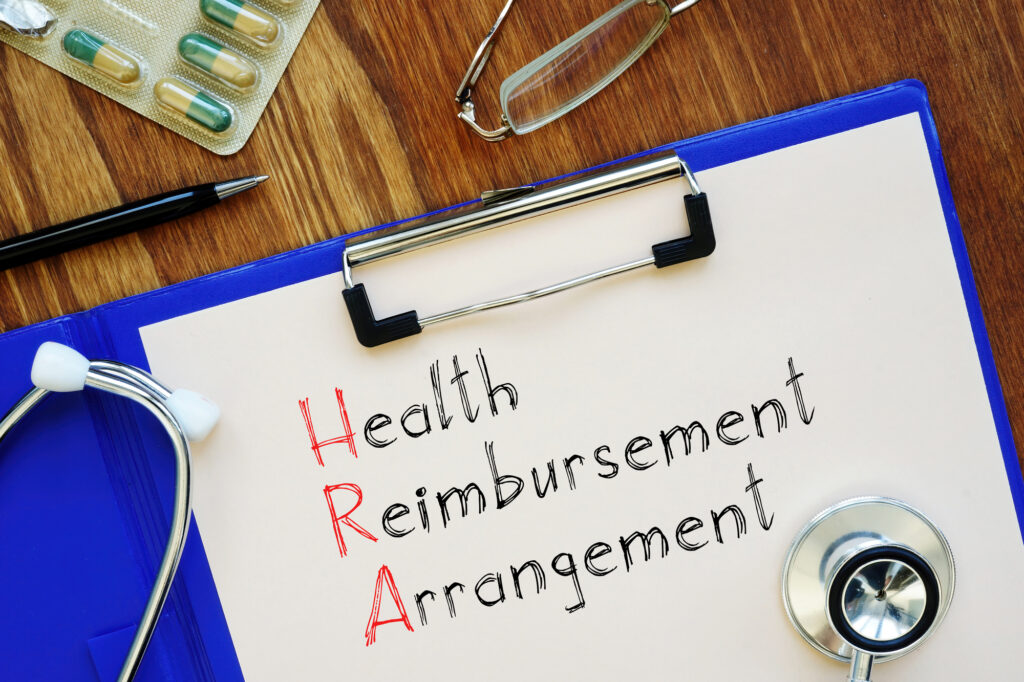
Healthcare benefits are a crucial consideration for both employees and employers, and small business owners are no exception. In recent years, Health Reimbursement Arrangement (HRA) plans have been gaining popularity among small businesses as a flexible and cost-effective solution to provide affordable employee healthcare benefits. In this article, we will explore why small businesses are increasingly choosing to offer HRAs, how HRAs work, and the additional benefits they provide to both employers and employees.
Contents
What is an HRA?
A Health Reimbursement Arrangement (HRA) is a tax-advantaged affordable employee healthcare benefit plan that allows employers to contribute funds to reimburse employees for qualified medical expenses. HRAs are typically used to assist employees with healthcare costs not covered by their insurance plans. Here are the key features and components of an HRA:
1. Employer Contributions
Employers establish HRAs and contribute a specific amount of money to each eligible employee’s HRA account. These contributions are typically tax-deductible for the employer.
2. Reimbursement for Qualified Expenses
Employees can use the funds in their HRA to reimburse themselves for qualified medical expenses. These expenses may include health insurance premiums, deductibles, copayments, prescription drugs, and certain medical services that are not covered by insurance.
3. Tax Benefits
Contributions made by employers to an HRA are tax-deductible for the employer, and reimbursements received by employees are typically tax-free as long as the expenses are for qualified medical purposes. This tax advantage is one of the key benefits of HRAs.
4. Flexibility
HRAs are flexible in terms of which expenses they can cover. Employers can design their HRA plans to cater to their specific needs and budget constraints. Some HRAs may only cover certain types of expenses, while others can be more comprehensive.
5. Employee Ownership
Unlike some other healthcare benefit plans, HRAs are owned by the employer but are generally under the control of the employee. Employees can decide how and when to use their HRA funds to cover medical expenses, giving them a degree of autonomy in managing their healthcare.
6. No Portability
HRAs are typically tied to the employer, and when employees leave the company, they may forfeit any remaining funds in their HRA account. However, there are exceptions to this rule, such as the Qualified Small Employer HRA (QSEHRA) and the Individual Coverage HRA (ICHRA), which may offer some portability options.
7. Compliance with Regulations
HRAs must comply with various regulatory requirements, including those set forth by the Internal Revenue Service (IRS) and the Affordable Care Act (ACA). Compliance ensures that the HRA is structured correctly and offers the intended tax benefits.
It’s important to note that there are different types of HRAs, such as QSEHRA, ICHRA, and more, each with its own set of rules and regulations. The choice of HRA type and the specific plan design can vary depending on the employer’s goals, employee needs, and budget considerations. Small business owners and employers often use HRAs as a cost-effective and flexible way to provide healthcare benefits to their employees while maintaining control over healthcare expenses.
How HRAs Work
HRAs operate on a simple premise. Here’s how they work:
- Employer Contribution: Employers establish HRAs and contribute a predetermined amount of money to each employee’s HRA account. This contribution is usually tax-deductible for the employer.
- Employee Expenses: Employees incur eligible healthcare expenses, such as premiums, deductibles, copayments, medications, and certain medical services. These expenses are paid out-of-pocket by employees.
- Reimbursement: Employees submit documentation of their eligible expenses to the HRA administrator. Once verified, the employer reimburses the employee from their HRA account. Reimbursements are typically tax-free for employees.
- Flexibility: Employees have the freedom to choose their own healthcare plans, whether it be individual health insurance, family coverage, or other qualified expenses. This flexibility allows employees to tailor their benefits to their specific needs.
Benefits of Businesses Offering HRAs
Let’s delve into the advantages that both employers and employees can enjoy when HRAs are implemented as part of their employee benefits package.
1. Attraction and Retention
Small businesses can use HRAs as a competitive advantage in attracting and retaining top talent. The ability to offer customizable healthcare benefits can make the company more appealing to potential employees.
2. Employee Engagement
HRAs encourage employees to be more engaged in their healthcare decisions. When employees have control over their healthcare choices, they become more proactive about their health and wellness.
3. Cost Savings
By setting a fixed budget for healthcare expenses, small businesses can better predict their healthcare costs. This can lead to significant cost savings over time, especially when compared to the rising premiums of traditional group health insurance plans.
4. Administrative Ease
HRAs are typically easier to administer than traditional insurance plans. There are fewer administrative tasks related to plan selection, and employers do not have to deal with complex underwriting or claims processing.
5. Compliance with Regulations
HRAs can help small businesses stay compliant with healthcare regulations, such as the Affordable Care Act (ACA). ICHRAs, for example, allow small businesses to offer healthcare benefits that meet ACA requirements.
Why Small Businesses Choose to Offer Health Reimbursement Arrangement (HRA) Plans
- Cost Control: One of the primary reasons small businesses are turning to HRAs is cost control. Traditional group health insurance plans often come with high premiums that can strain the budget of a small business. HRAs offer more predictability and flexibility by allowing employers to set a specific budget for healthcare expenses. This helps small business owners manage their healthcare spending more effectively.
- Employee Choice: HRAs empower employees to choose their own healthcare plans that best suit their individual needs and preferences. This flexibility can be especially valuable in attracting and retaining talent, as employees appreciate the ability to select the coverage that aligns with their unique circumstances.
- Tax Benefits: HRAs offer tax advantages for both employers and employees. Contributions made by employers are tax-deductible, and employees can receive tax-free reimbursements for eligible healthcare expenses. These tax incentives make HRAs an attractive option for cost-conscious small businesses.
- Regulatory Changes: Recent regulatory changes, including the expansion of HRAs through the 21st Century Cures Act and the introduction of Individual Coverage HRAs (ICHRAs), have made it easier for small businesses to offer HRAs. These changes have opened up new opportunities for employers to provide healthcare benefits without the administrative burden associated with traditional insurance plans.
Health Reimbursement Arrangements (HRAs) FAQs
Find answers to commonly asked questions about HRAs in our frequently asked questions section below.
Is an HRA the same as health insurance?
An HRA (Health Reimbursement Arrangement) and health insurance are not the same. An HRA is an employer-sponsored plan that reimburses employees for specific medical expenses but is not an insurance policy. It’s funded by the employer, covers certain out-of-pocket healthcare costs, and offers tax benefits. On the other hand, health insurance is a policy that individuals or groups buy to pay for various medical services and expenses, providing broader coverage for services like doctor visits and hospital stays. Employers often use both HRAs and health insurance to offer comprehensive healthcare benefits, with the HRA helping employees with certain costs associated with their health insurance plan.
Which is better HSA or HRA or PPO?
Choosing between an HSA (Health Savings Account), HRA (Health Reimbursement Arrangement), or PPO (Preferred Provider Organization) depends on your individual needs. An HSA is for those who want control and tax benefits while saving for medical expenses with a high-deductible plan. HRAs are employer-funded and flexible, often paired with different insurance plans. PPOs offer a broader choice of providers but come with higher premiums. The “better” option depends on your health, finances, and preferences. Consider whether you want to save, prefer employer contributions, or prioritize provider choice, and consult a specialist to make the right choice for your situation.
How do I access my HRA money?
To access your HRA (Health Reimbursement Arrangement) money, you’ll first need to incur eligible medical expenses, such as health insurance premiums, copayments, or deductibles. Keep records of these expenses. Next, submit a reimbursement request to your HRA administrator, following your employer’s specified process. The administrator will verify your expenses and, upon approval, issue a reimbursement to you, typically through a check or direct deposit. It’s essential to understand your HRA plan’s specific terms and keep accurate documentation. Reimbursements for qualified medical expenses are typically tax-free, providing a convenient way to cover healthcare costs.
Conclusion
Health Reimbursement Arrangements (HRAs) have become an increasingly popular choice for small business owners seeking to provide affordable employee healthcare benefits to their employees. Their cost-effectiveness, flexibility, and tax advantages make them an attractive option in a competitive job market. By understanding how HRAs work and the additional benefits they offer, small business owners can make informed decisions to enhance their employee benefits packages while managing costs effectively. As the healthcare landscape continues to evolve, HRAs are poised to remain a valuable tool for small businesses looking to provide quality healthcare benefits to their employees.
Featured Image Credit: Deposit Photos




